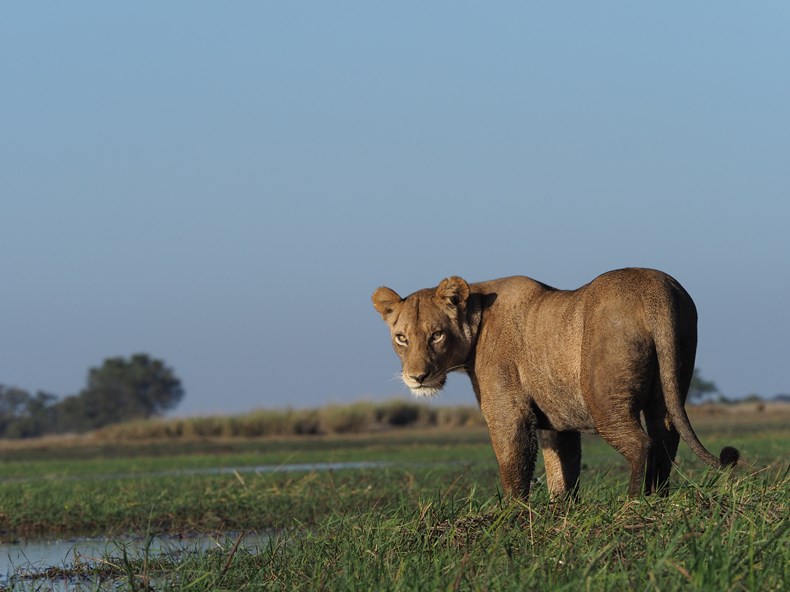Every Busanga Plains Guest is a Conservationist

Wilderness Safaris camps, Shumba and Busanga Bush Camp, situated far off the beaten track in Zambia’s Busanga Plains, have played a vital role in pioneering a frontier ecotourism presence in Kafue National Park since 2005. Despite a shortened tourism season, both camps have never compromised on their conservation initiatives, which include anti-poaching activities and numerous research projects.
“We took a leap of faith by operating from just 1 June to end October each year in this remote region, in order to help protect the ecosystem and expand ecotourism across Africa. Despite the financial losses we have incurred since opening, we have seen first-hand what a difference our simple presence has made in the area’s ongoing biodiversity conservation and local economy. Our aerial surveys, in partnership with the Department of National Parks and Wildlife, have shown a staggering increase in a variety of species, such as red lechwe, puku and blue wildebeest”, says Ron Goatley, Wilderness Safaris Zambezi MD.
Located in the extreme north of Kafue, Wilderness Safaris’ existence plays a key role in the conservation of the country’s largest species diversity – some 55 large mammals, including 20 ungulate and six cat species, as well as nearly 500 bird species. Busanga Plains remains one of Africa’s most significant wetland resources, and one of the few areas in the world untouched by development and human activity.
Further showcasing its commitment to conserving and restoring remote areas in Africa, the company recently partnered with the Lion Recovery Fund and other major tourism entities to form the Lionscape Coalition, to collaborate on lion recovery in key landscapes such as Kafue, and generate increased awareness of the lion population decline while raising significant additional funds for lion recovery.
